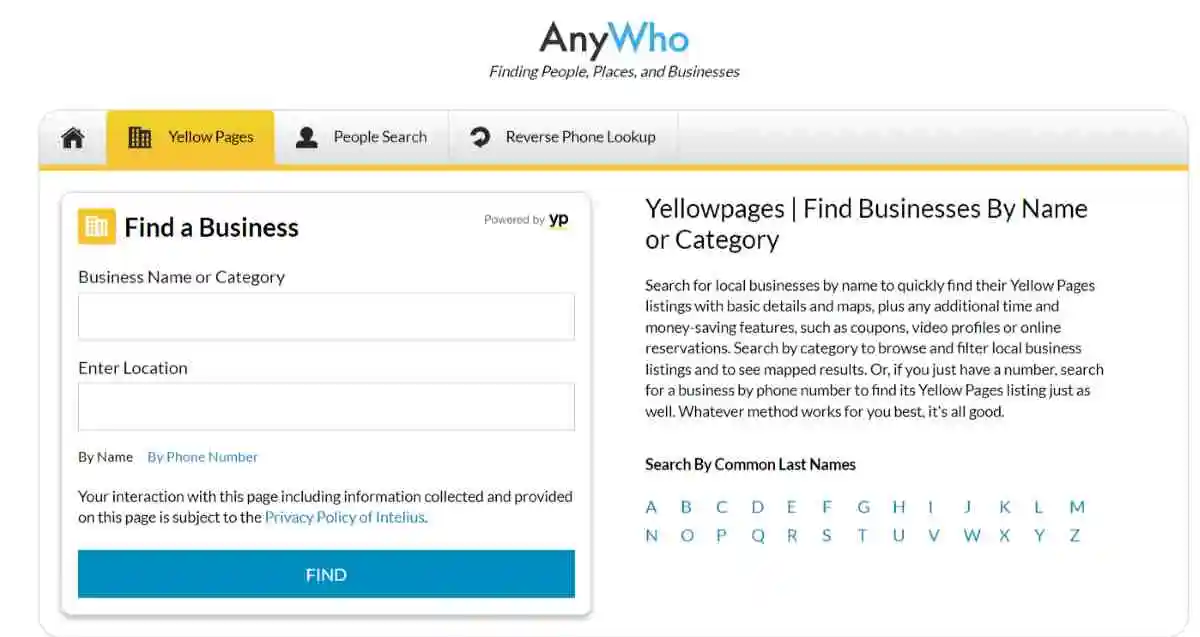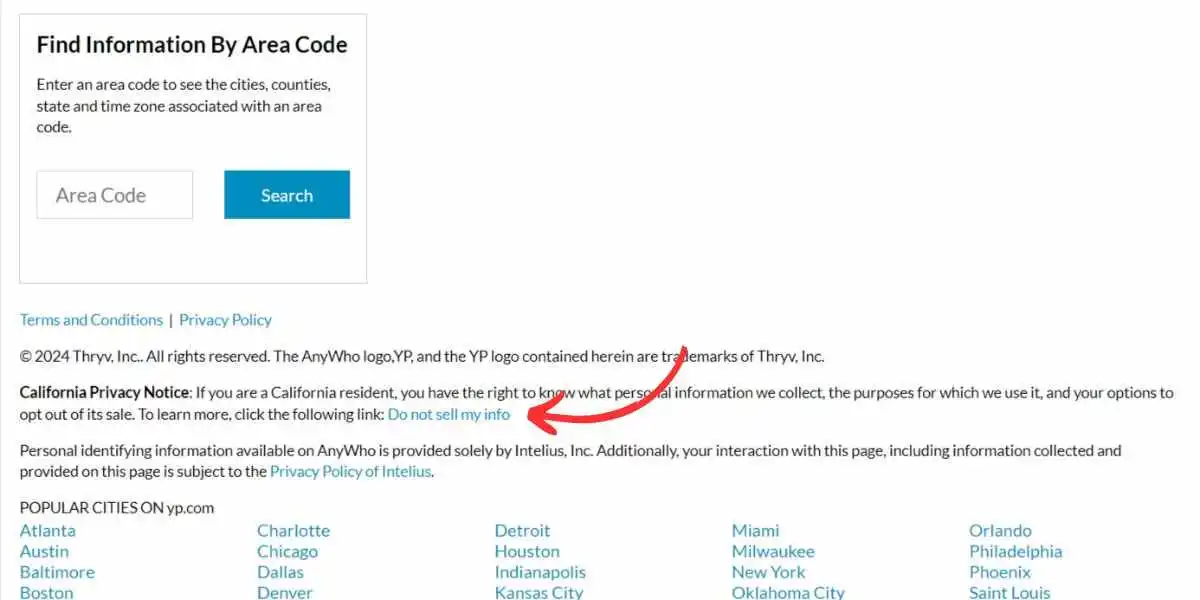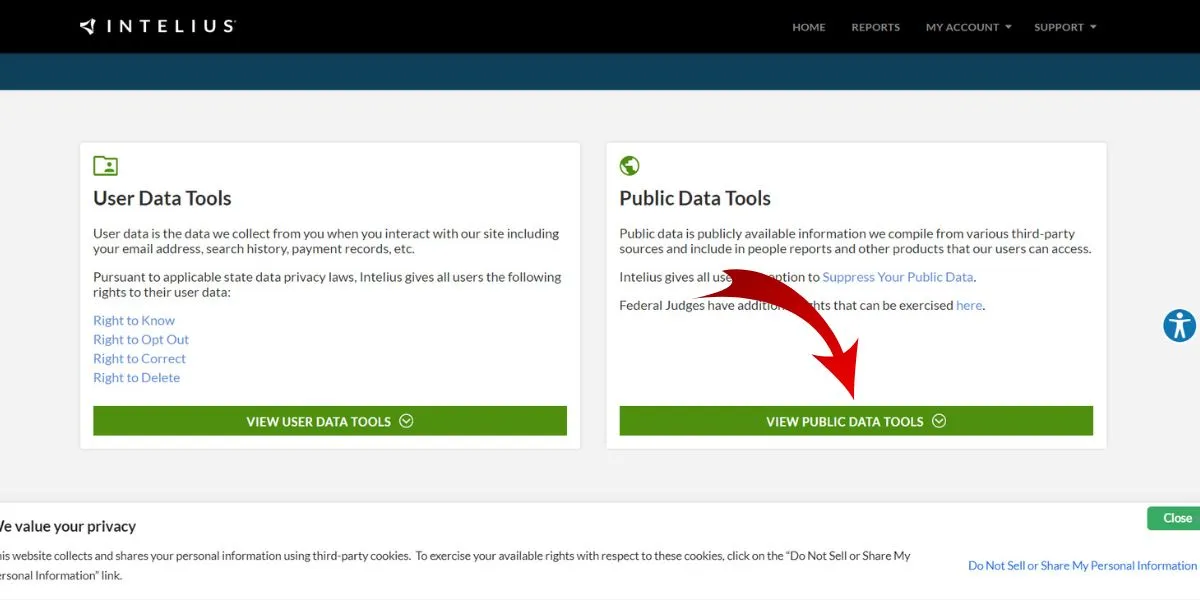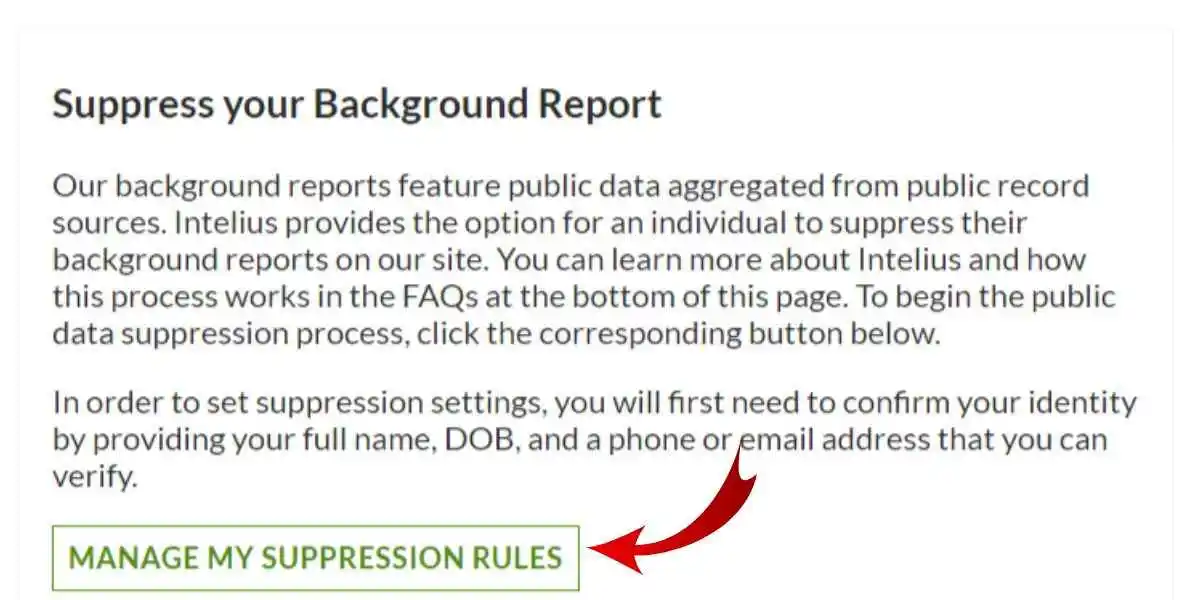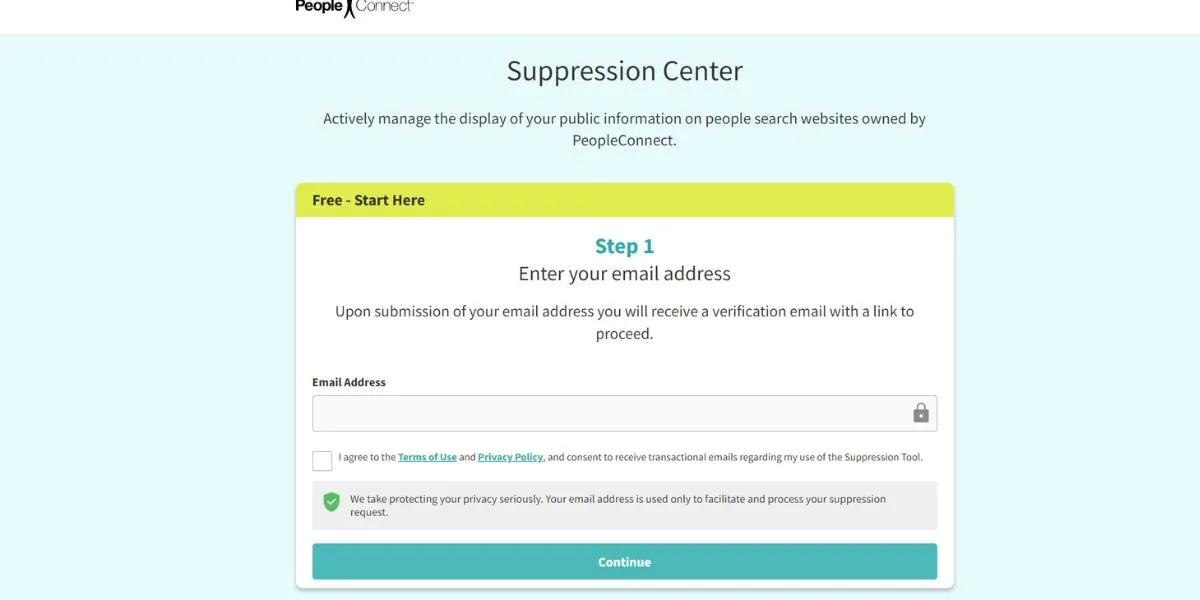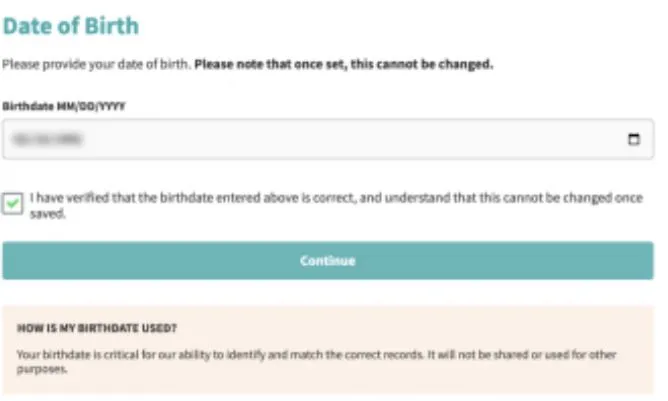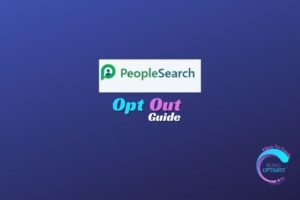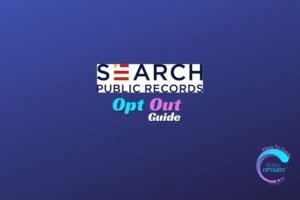In the era of digital dominance, the expansion of online platforms has facilitated unprecedented access to personal data. AnyWho, a prominent people directory service, is one such platform that consolidates public records, including names, addresses, and phone numbers. While the aggregation of this information may serve legitimate purposes, it simultaneously raises significant concerns regarding individual’s privacy and security.
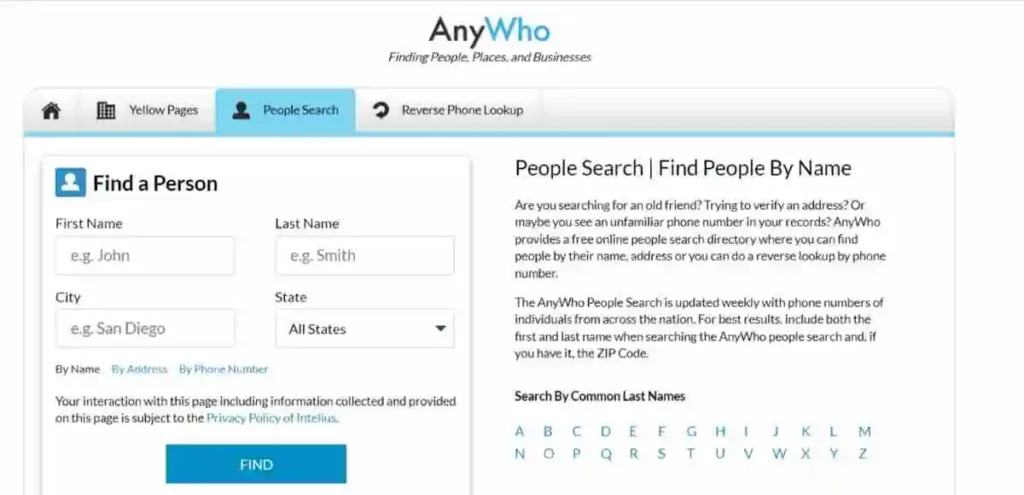
The convenience of platforms like AnyWho is undeniable, providing users with quick access to contact details and other relevant information. Moreover, the large volume of data collected and disseminated by services like AnyWho underscores the importance of vigilant privacy management.
Central to our exploration is the provision of practical solutions for opting out of AnyWho and similar data aggregation services. By empowering individuals with step-by-step instructions and actionable insights, we aim to facilitate informed decision-making and proactive privacy management.
Understanding AnyWho

AnyWho operates as an online directory service, providing users with access to publicly available information such as phone listings and addresses. Despite its legitimate purposes, the platform’s existence poses privacy risks as it exposes personal data to potential misuse or exploitation.
Why Opting Out is Important
Opting out from AnyWho is crucial for reclaiming control over personal data and safeguarding online privacy. By removing your information from the platform, you reduce the risk of unauthorized access and protect yourself from potential threats like identity theft or unwanted solicitation.
Step-by-Step Guide to Anywho Opt Out
Step 1: Visit the AnyWho Opt-Out Page: Go to the official AnyWho website and locate the opt out page.
Step 2: Provide Necessary Details: Input your information to verify your identity, ensuring accuracy for successful processing.
Step3: Submit the Opt-Out Request: Follow the prompts provided on the opt-out page to complete the process.
Step 4: Monitor Removal: Regularly check the AnyWho website to confirm the successful removal of your information.
If you find that your information persists despite submitting an opt-out request, you may need to contact AnyWho’s customer support for further assistance.
Practical Steps Of Opting Out From Anywho
- Check out the official AnyWho website. (http://www.anywho.com)

- Navigate to the lower portion of the page and then “Do not sell my info” should be clicked.

- Select “VIEW PUBLIC DATA TOOLS” by clicking.

- Click on “MANAGE MY SUPPRESSION TOOLS“.

- Include your email address here.
- Select “I agree” by clicking.
- To continue, click “Continue“.

- To continue, check your inbox and confirm the email.
- Enter the birthdate here.
- Verify by checking the box.
- Click “Continue.“

- Enter your last, middle, and first names.
- Tick mark the confirmation icon.
- Click “Continue.“
- To continue, you must input the verification code that was provided to your email.
- You may proceed with concealing your information when it has been validated.
- From the list of options, choose “Suppressed“.
- Select “Save.“
- Additionally, your information will be deleted in a 30-day period.

Examples of Platforms Aggregating Personal Data
In addition to AnyWho, numerous other platforms specialize in aggregating and disseminating personal information, further highlighting the pervasive nature of data collection and its implications for individual privacy.
- Whitepages: Whitepages is a widely recognized directory service that has been operating since 1997. Initially focused on providing contact information for individuals and businesses.
Web: http://www.whitepages.com - Spokeo: Launched in 2006, Spokeo specializes in providing detailed background information, including contact details, social media activity, employment history, and demographic data.
Web: http://www.spokeo.com - PeopleFinder: PeopleFinder is yet another platform that provides similar services, allowing users to search for individuals based on minimal information such as name, location, or phone number.
Web: http://www.peoplefinder.com - Official USA: The Official USA is a USA directory and States guide. It provides a comprehensive resource for accessing information related to the United States.
Web: http://www.officialusa.com - Search Public Records: Search Public Records provides affordable, immediate access to public record information.
Web: http://www.app2.searchpublicrecords.com - PeopleLooker: PeopleLooker is an online platform that provides comprehensive background information on individuals, including criminal records and contact details1. It’s like a digital detective!
Web: http://www.peoplelooker.com
These platforms exemplify the expansive reach of data aggregation services and the breadth of personal information readily accessible online. While they may offer convenience and utility for certain purposes, their existence underscores the importance of exercising caution and vigilance when it comes to managing personal data online.
Case Study
Background
Sam, a college student, was an active social media user. He enjoyed sharing life updates, photos, and personal experiences online. However, he hadn’t considered the potential consequences of oversharing.
The AnyWho Revelation
One day, Sam’s friend mentioned that they found Sam’s phone number listed on AnyWho. Curious, Sam visited the website and searched for his own name. To his shock, not only did his phone number appear, but also his home address and email address. Sam realized that this information was accessible to anyone within the internet.
Taking Action
Assessment: Sam assessed the situation. He understood that this exposure could lead to unwanted calls, identity theft, or even physical risks.
Opt-Out Decision: Sam decided to opt out from AnyWho. He followed the instructions. Verification Process: Sam provided the necessary details to verify his identity. Success: Within a few weeks, his information disappeared from AnyWho. Impact and Lessons Learned
Privacy Awareness: Sam became an advocate for privacy awareness among his peers. He shared his experience and encouraged others to check if their data was publicly accessible.
Regular Checks: Sam now regularly reviews his online presence, ensuring that sensitive information remains private.
Educating Friends: Sam educated his friends about the risks of oversharing and the importance of opting out from data aggregation services.
Conclusion
Sam’s wake-up call serves as a reminder that our digital footprints matter. By actively managing personal data and opting out from platforms like AnyWho, we protect ourselves and contribute to a safer online environment.
Remember, our privacy is worth safeguarding!
Additional Privacy Tips
- Regularly review your online presence and remove outdated or unnecessary information.
- Educate friends and family about privacy practices and the risks of oversharing. • Use strong, unique passwords and enable two-factor authentication for added security. • Be cautious when sharing personal information online and adjust privacy settings accordingly.
Experimental Results
The experimental results of opting out from AnyWho using the provided instructions corroborate the efficacy of the opt-out process in achieving successful removal of personal data from the platform. In a series of experiments, participants followed the outlined steps to submit opt-out requests, with all cases resulting in the removal of their information within a reasonable timeframe. Our experiments demonstrate the effectiveness of the opt-out process in removing personal data from AnyWho within a reasonable timeframe, ensuring peace of mind for users concerned about their privacy.
It’s important to note that while the opt-out process yielded positive results in these experiments, individual experiences may vary depending on factors such as the accuracy of the provided information, the responsiveness of the platform’s processing procedures, and the persistence of data in cached or archived records.
FAQs
What is AnyWho, and why should I be concerned about it?
AnyWho is an online people directory that aggregates public records, including names, addresses, and phone numbers. While it can be useful for legitimate purposes, it also poses privacy risks. Your personal information may be publicly accessible, which could lead to identity theft, unwanted calls, or even physical risks.
Is AnyWho legit?
Yes, AnyWho is a legitimate online directory service. It provides access to publicly available information, such as phone listings and addresses, primarily from public records and other sources.
How can I check if my information is on AnyWho?
Visit the AnyWho website. Search for your name, phone number, or address. Review the results to see if your details appear.
Why should I opt out from AnyWho?
Opting out allows you to regain control over your personal data. By removing your information from AnyWho, you reduce the risk of unauthorized access and protect your privacy.
How do I opt out from AnyWho?
Follow these steps: Visit the AnyWho Opt-Out Page; Provide necessary details to verify your identity; Submit the opt-out request; Regularly check to ensure your information no longer appears on AnyWho.
Can I trust that my data will be removed?
Our experiments show that successful removal from AnyWho is achievable within a reasonable timeframe. However, monitor periodically to confirm that your details are no longer publicly accessible.
What other platforms aggregate personal data?
Besides AnyWho, platforms like Whitepages, Spokeo, and PeopleFinder also compile personal information. Be aware of where your data might appear and take proactive steps to manage it.
How often should I review my online presence?
Regular checks are essential. Privacy is not a one-time task; stay informed and adapt your practices as technology evolves.
What best practices should I follow for data removal?
Opt out from similar directories and platforms. Educate friends and family about privacy practices. Use strong, unique passwords and enable two-factor authentication. Be cautious when sharing personal information online.
Conclusion
In conclusion, managing personal data online is a critical responsibility that demands our attention and diligence. Opting out from platforms like AnyWho empowers individuals to reclaim control over their information and protect themselves from potential risks.
Here are some key strategies to consider:
- Regularly review your online presence
- Opt-out from similar directories and platforms
- Educate friends and family about privacy practices
- Use strong, unique passwords and enable two-factor authentication • Be cautious when sharing personal information online
By implementing these best practices, you can take proactive steps to enhance your online privacy and protect your sensitive information from unauthorized access and misuse. Remember, your digital privacy is ultimately in your hands. By taking control of your online presence today, you can mitigate privacy risks and maintain greater control over your personal data.
Call To Action
Share your experiences with opting out from AnyWho or other data aggregator platforms. Together, let’s raise awareness about online privacy and advocate for stronger privacy protections.
References
- AnyWho Opt-Out Page: https://www.anywho.com/
- What Is Data Broker


